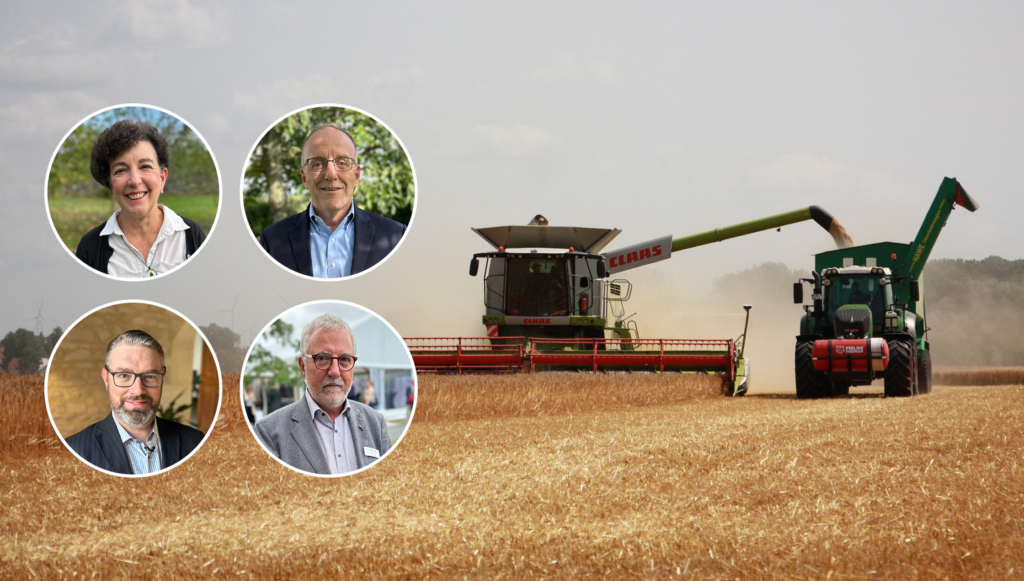Growers everywhere are suffering significant yield losses due to climate change. All major producing countries are concerned, not just France or northern Europe. “Speaking for the North American region, we are seeing much more frequent and much more extreme droughts,” highlighted Dr. Mark Trimmer, CEO of DunhamTrimmer, a US company specializing in the biosolutions market.
Invited to speak alongside other experts during Elicit Plant’s International Climate Change Prevention Day, Dr. Trimmer emphasized the increasing frequency of water stress, combined with rising temperatures in the US and Canada. He explained how these phenomena affect the whole of the west of the continent. Yields are severely impacted, even among growers with access to irrigation. Droughts are no longer localized, but are impacting much larger regions and lasting longer.
In Spain, 75% of agricultural land threatened by desertification
In southern Europe, and especially in Spain, the situation is becoming critical. Water has always been an issue in the countries of the Mediterranean arc, but over the last twenty years the situation has evolved considerably, asserts Dr. Francesc Llauradó, CEO of Lainco Agro & Sirius Agrobusiness Consulting. “In 2022, droughts caused Spanish farmers to lose 8 billion euros in harvest. In 2023, the figure is probably around 12 billion euros.” According to forecasts, 75% of Spain’s agricultural land could be desert within the next forty to fifty years. As an initial consequence, more and more farmers in the south are consolidating their farms, improving their irrigation systems and choosing crops with lower water requirements.
Drought in Brazil: estimated losses of 30 billion euros
In Brazil, the world’s leading producer and exporter of soybeans and third largest producer of corn, the situation is similar – albeit with regional differences. “Each region has its own behavior,” explains Felipe Sulzbach, Head of Elicit Plant Brazil, where the agtech start-up is firmly established. “In the south of Brazil, we have had three seasons of severe drought.” In some places, for corn alone, water stress has halved yields. Losses have been estimated to total 30 billion euros.
The impact of climate change is also reflected in extremes and numerous climate hazards. Felipe Sulzbach explains how six months ago, there was a severe drought, then suddenly 200mm of rain fell in a few days, causing severe flooding. He cites Chile and Argentina as examples, where rainfall deficits and rising temperatures have reached record levels… in the middle of the austral winter. Throughout South America, farmers are trying to adapt to this increasingly unpredictable climate.
Phytosterols offer a completely new perspective
According to Dr Pam Marrone, a world-renowned expert in the field of biosolutions, there are still too few companies focusing on water resource management by plants. “There is an explosion in start-ups in biologicals […] but only a handful are really dedicated to water stress management,” notes the specialist. Yet this is a crucial issue for agriculture on every continent. Elicit Plant’s approach in this field clearly sets it apart from its competitors.
Water resources are dwindling all over the world. Aware of the problem, the agricultural ecosystem is working collectively to develop new avenues for research and development. Phytosterols offer a completely new perspective, concludes Pam Marrone. Elicit Plant’s results are very promising, particularly in terms of maintaining or even improving yields. It’s a company that has no equivalent in this market segment.



